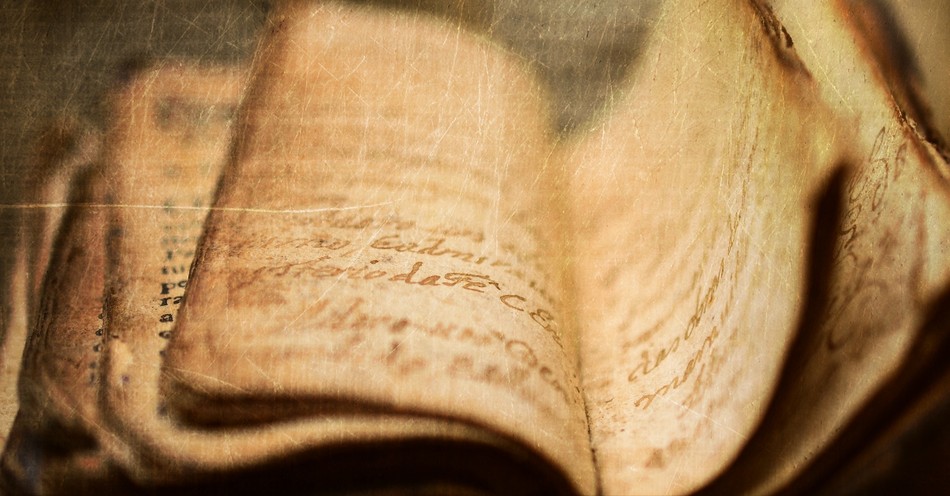It is right to fight for truth, to stand for what is real. God’s truth saves, redeems, and brings life and blessing. In a world of competing philosophies and selfishness, as believers, we show compassion by pointing people to Christ and his truth.
At the same time, we mustn’t allow the fight for truth to lead us to an extreme where we can find no value in any other voice or perspective. The Bible is the written expression of God’s Word, pointing us all to Jesus and the Father by the Spirit. All things will be judged by that standard, and reasonable judgment sifts the clean from the unclean.
From the beginning, the early church lived in a time of a plurality of ideas, religions, and agendas. The Pax Romana allowed for such developments and more writing than ever before in history. The first and second-century church had to delineate between apostolic, godly truth and the heresies and deceptions that would lead people astray. This wrestling led to what we call the canon, the Bible we now possess.
Yet other books existed, from before and after Jesus. The Book of Enoch was probably the most influential of these extra-biblical books during Jesus’ time. It was rejected as canon, as spiritually authoritative. However, how should we approach the book today? Is it a sin to read the Book of Enoch?
What Are the Apocryphal Books?
In Christian literature, the apocryphal books refer to ancient writings not included in the biblical canon. The term apocrypha means “hidden” or “secret” in Greek, and this originally described writings with special knowledge, and many of these extra-biblical books claimed to have exactly that. Therefore, over time in the early church, they used these terms to designate books found in some copies of the Septuagint but not in the Hebrew Bible, as well as different letters and gospels not included in the New Testament canon.
There are different types of apocryphal books. Historical books make up one category, like 1 and 2 Maccabees, which record the Jewish revolt against Seleucid rule, which led to Hanukkah. Other books, like Tobit and Judith, mix history with mystical or theological content. Wisdom literature, like the Wisdom of Solomon and Sirach, also provide teachings on righteous living, similar to Proverbs or Ecclesiastes. Each of these would have had some influence on Jewish thought by Jesus’ time.
When the New Testament was being put together, a different set of writings emerged and were rejected as canon. These included gospels (like the Gospel of Thomas), a type of history like the Acts of Paul and Thecla, and the Apocalypse of Peter. Early church leaders rejected these books for doctrinal teaching due to questionable authorship or heretical doctrine. In the Hellenistic world and before, people would write books under a popular person’s name to further their own philosophies, and the early church rejected these. The Book of Enoch was one such book.
What Is the Book of Enoch?
Enoch is an ancient religious Jewish writing attributed to Enoch, the great-grandfather of Noah. Enoch explores the heavenly reality, angels, God’s judgment, and where evil comes from. While not a part of the Hebrew or Christian canons, the Book of Enoch greatly influenced early Jewish thought and New Testament writings.
The book came from somewhere between the 3rd century BC and Jesus’ time. Scholars think Jewish scribes wrote in stages, eventually collecting five sections into one: The Book of the Watchers, The Book of Parables, The Astronomical Book, The Dream Visions, and The Epistle of Enoch. Since it was written a thousand years or more since Enoch lived, we know Enoch didn’t pen it. Multiple authors probably contributed to Enoch over a few generations. These writers came from apocalyptic circles, Jews looking for God’s supernatural deliverance from oppression, and they helped develop a new type of prophetic genre, the apocalypse, which the Apostle John wrote about later and which is included in the biblical canon in Revelation.
The authors use the figure of Enoch, a man before the Flood who lived a long time. He walked closely and faithfully with God and was taken to heaven (Genesis 5:24). This mysterious story made it easy to attribute these mystical, divine secrets to a man who avoided death. Using Enoch’s voice, the Jewish authors wrote their perspectives on injustice, oppression, God’s judgment, and the works and battles of angels in a cosmic war between good and evil.
The book of Enoch tells the story of the Watchers, angels who married human women and fathered giants, which expands a brief passage in Genesis 6:1-4. As a heavenly scribe, Enoch records the sins of the angels and their progeny and delivers God’s judgment. Enoch also expresses the developing Jewish ideas about the universe, time, and history through dreams and astrology. Enoch finally describes God’s final justice upon the world, saving righteous Jewish communities around the world.
The Book of Enoch had definite influence on the New Testament. Early Christian writers used the ideas in the Book, the astrology likely influencing Matthew’s inclusion of Magi following a star to the Messiah. Jude 14-15 directly quotes Enoch, and Revelation has parts resembling Enoch’s visions.
Why Isn’t the Book of Enoch Considered Canon?
If Enoch had so much influence, why wasn’t it included as canon? The early church had three main criteria for designating a writing as authoritative.
First, apostolic doctrine refers to whether the teaching within the book lines up with the messages of Jesus and the apostles. The early church believed Jesus raised up and taught the apostles his message and empowered them specifically to establish it to others. True doctrine must align with the apostles, therefore. Although Enoch discusses some concepts found in the New Testament, it includes a great deal of mythological elements inconsistent with the New Testament. For example, the cosmic calendars in Enoch don’t line up with Jesus’ death and resurrection.
Second, apostolic authorship points to whether an apostle or close associate of the apostle wrote the text. Enoch lived a thousand years or more before the writing of the book attributed to his name, which means the Jewish authors used a false name for their own ideas. Such pseudepigraphal books were highly questioned or outright rejected by the early church.
Third, universal church acceptance meant the book or writing needed to be used as authoritative by the church across all regions and communities. The Spirit within the church universal (across different cultures and languages) needed to attest to the spirit behind the book. While some early Christian groups rejected and quoted Enoch, especially in Ethiopia, most of the church didn’t accept as Scripture. Later church councils in the 2nd and 3rd centuries also left it out of the canon for the above reasons.
Enoch has been preserved as an interesting historical work but not part of the inspired Word of God.
So, Is it a Sin to Read the Book of Enoch?
What is a sin? To willfully participate in an act or thought against God’s will and direction. Reading a book, any book, outside of the Bible isn’t a sin, but we must be sure to have a godly motivation and perspective when doing so. If Jude, a book in the New Testament, quotes from it, then reading it can’t be a sin.
First, we should acknowledge the Book of Enoch’s historical influence, especially on the early church. Along with the influence within the New Testament, from the Gospels to Jude to Revelation, early Christian writers like Tertullian and Origen wrote about it, too. Because of its influence, understanding Enoch can help us comprehend the religious and cultural background of the New Testament.
Second, placing the Bible as the ultimate standard, reading Enoch can help us discern truth. By comparing Enoch’s teachings with the Bible, we can recognize the difference between inspired, apostolic teaching and other religious books. Further, many agnostics, atheists, or seekers read and explore Enoch for a variety of reasons, and knowing about the apocryphal book will help us speak intelligently and share truth in discussions with other people.
However, we must be very clear. The Book of Enoch isn’t canon, and we shouldn’t attribute the same authority to it as the rest of Scripture. It becomes tempting to find some secret knowledge or hidden text, like theological Indiana Jones, but the early church didn’t include it in the Bible for very good reasons. It failed all three tests for biblical canon. Its visions, mythology, and angelic hierarchies go beyond the boundaries of God’s Word. Paul even warned against delving into angelic mysteries in one letter.
Therefore, we should reject Enoch as inspired, authoritative, or doctrinal. We must never treat it as equal to Scripture or use it for doctrine or practice. At the same time, reading it with a wise and discerning heart isn’t sinful. Like any book, good or bad, it becomes a problem only when we elevate it beyond what it is.
Peace.
Photo credit: ©iStock/Getty Images Plus/BlackQuetzal




